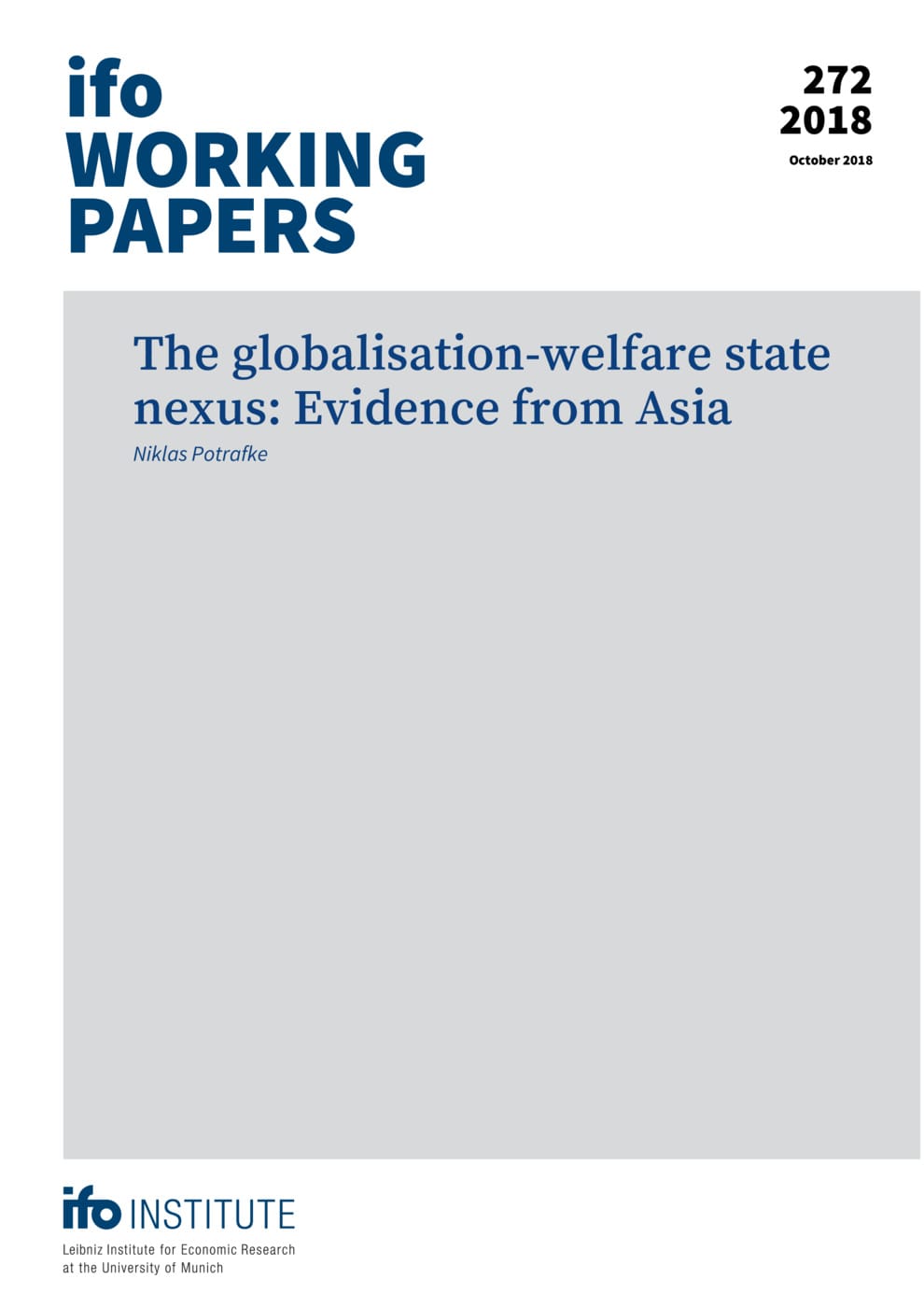The globalisation-welfare state nexus: Evidence from Asia
ifo Institute, Munich, 2018
ifo Working Paper No. 272

How globalisation influences social expenditure has been examined for industrialized countries. Globalisation has often been shown to be positively associated with social expenditure in established industrialized countries, a finding that corroborates the compensation hypothesis. Scholars have focused on industrialized countries, because social expenditure is difficult to measure in developing countries. I use new data on social expenditure for Asian non-OECD countries. Globalisation is measured by the new KOF Globalisation Index. My results do not suggest that globalisation influenced social expenditures in Asia. Neither do the results suggest that the nexus between globalisation and social expenditures varied across high-income countries, such as Hong Kong and Singapore, and lower-income Asian countries or across Asian regions. It is conceivable that Asian citizens did not demand increasing social support when globalisation proceeded rapidly because they enjoyed family and other private assistance. Asian countries also have weaker tax and labour market institutions than OECD countries and have therefore more difficulties in increasing social expenditures.